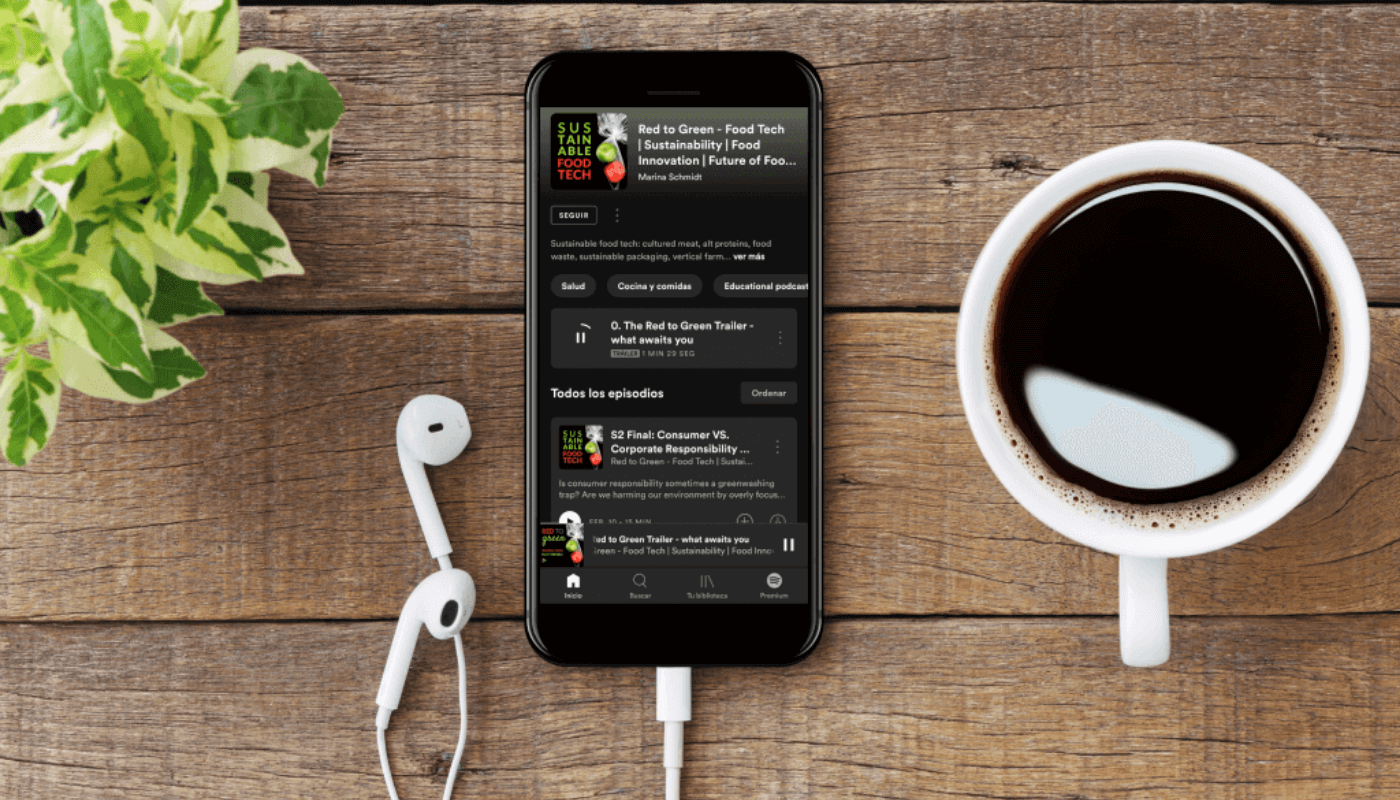This article is based on the second season of the Red to Green podcast on food tech for sustainability and health. The first season covered cell-based meat, dairy and seafood and the second season was about plastic alternatives.
The third season will be out in mid-April and it will be dedicated to Consumer Acceptance. Listen to the episodes on Spotify, iTunes and other platforms.
Moving from “red to green” means moving the food Industry from harmful to healthy, and from polluting to sustainable.
The first season taught us about the incredible potential of cultured meat, it is made up of 14 episodes with lots of insights from leading innovators like Paul Shapiro, Ryan Bethencourt and Britta Winterberg.
Season 2: plastic alternatives

The plastic alternatives season highlights the misconceptions about packaging and then focuses on the most innovative solutions in the food industry. Including 10 different protagonists with diverse backgrounds for the twelve episodes.
The season starts with Red to Green Solutions founder Marina Schmidt giving an overview of the topics, starting from greenwashing and moving to microplastic toxicity. This episode is co-hosted by Nick Jonhson, one of the Red to Green research volunteers.
Julia Goldstein, author of “Material Value” and “Rethink the bin” is the protagonist of the second episode, where she builds the terminology’s foundation necessary for a better understanding of the following episodes.
She explains the differences between terms like: biodegradable, compostable, bioplastics, bio-based plastics and recycled.
The guest of the third episode is Paul Foulkes-Arellano, founder of the Sustainable Design Alliance, and a Plastic Planet Advisor with 30 years of experience in innovation consultancy. He breaks down all the hidden greenwashing tactics that affect the everyday choices we make as consumers.
The most innovative materials
The second part of the podcast gives visibility to entrepreneurs that are breaking the rules in packaging, like Lise Honsinger COO & CFO of Notpla, a leading manufacturer of algae-based packaging materials that are fully compostable, and Paul Gilligan,
Managing Director of Magical Mushroom Company the leading manufacturer of mycelium based packaging in Europe.
It is really important to start considering the opportunities that these companies are generating and all the problems that they are able to solve. This is mainly because they will reduce food waste, thanks to the shift in materials, and generate new materials from waste.
No more spoilers allowed! We absolutely suggest for you to follow Red to Green on social media (Linkedin and Instagram) and to start listening to one of our favorite podcasts in food tech. All the previous season’s episodes are available on Spotify, iTunes and other platforms.
